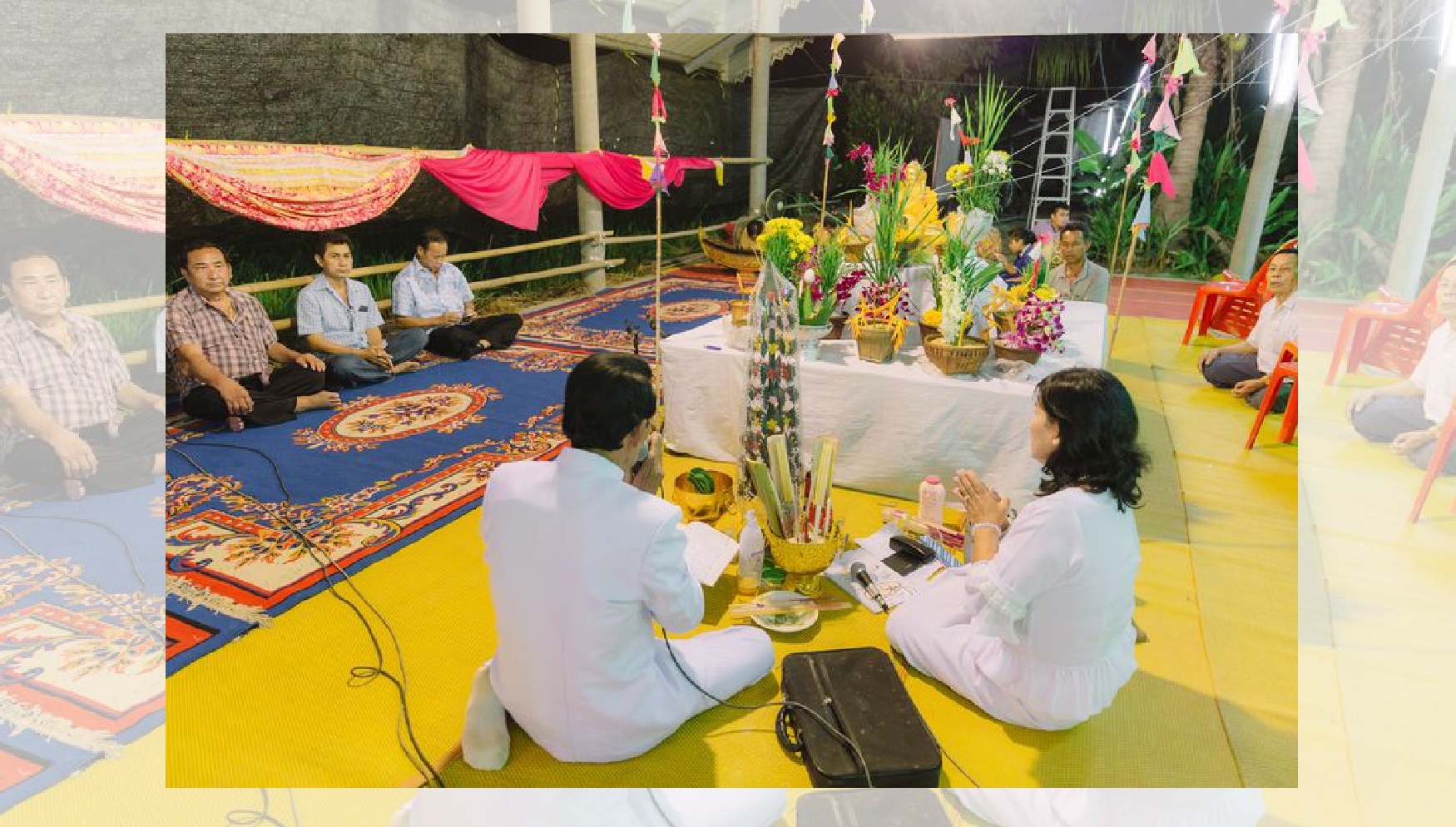UPANAYANA: The Sacred Thread Ceremonies and Beliefs in the Vedic Texts and Thai Society
Keywords:
Upanayana, thread, ceremony, belief, VedasAbstract
The objectives of this academic article were: 1) to study the Upanayana ritual in the Vedas and 2) to study the sacred thread ritual related to the belief in the Vedas and Thai society. From this study it was found that: Upanayana is a sacred thread ritual or investiture with the sacred thread which is performed when young people of the first three castes are passed over to a teacher to learn various forms of knowledge.This ritual originated in the Vedic period and continues to the present day. Another name for this ritual is “Yajyopavita.” The colors of the sacred threads are different, depending on the castes and their gods. The sacred thread ceremonies in Thai society differ from the ceremonies in the Vedas in various ways. There are 2 kinds of threads according to Thai beliefs: 1) the Sai-siñcana has 2 colors; white and multicolored—both are used in auspicious ceremonies only—and 2) Sai-yong; which is used only in funeral rites. All classes of Thais can use all kinds of sacred threads for they are not limited to some castes like in the Indian rituals. Although the two nations have different beliefs, they still use the threads to establish stability and unity for the people in society. Therefore, the sacred threads used in the Vedas and Thai society are a meaningful symbol in the two cultures to connect differences and create unity in the two nations perfectly.
References
Apte V.S., 1890. The Practical Sanskrit-English Dictionary. Poona: The Arya Vijaya Press.
Chaiyotha D., 1996. All Religions. Bangkok: Odian Store.
Choosukhserm Th., 2019. “An Analysis of Rites in the Vedas.” Doctoral dissertation. Eastern Philosophy and Religion, Graduate school, Khon Kaen University.
Department of Religious Affairs, 2009. Ceremonies and Traditions. Bangkok: Agriculture Cooperatives of Thailand.
Grimes J., 1996. A Concise Dictionary of Indian Philosophy. New York: State University of New York Press.
Griswold H.D., 1999. The Religion of the Rigveda. Delhi: Motilal Banarsidass.
Horn A.S., 1988. Oxford Learner’s Dictionary of Current English. Fifth Impression. Oxford: Oxford University Press.
Jamison S.W. & Witzel M., 1992. Vedic Hinduism. Monograph.
Kieth A. B., 1970. The Religion and Philosophy of the Veda and Upanisads. Delhi: Motilal Banarsidass.
Krishnaswamy N. & Harini Narayan, 2014. The Vedic Way of life for the first time Reader. Chennai. Documents.
Lakshman R.V., 1889. The Standard Sanskrit-English Dictionary. Poona: Book-seller and Publisher.
Narayana H., 1895. The Vedic Philosophy. Bombay: The Tatva- Vivechaka Press.
Office of the Royal Society, 1999. Dictionary of the Royal Society. Bangkok: Nanmeebooks Publication.
Phra Dhammapitaka (P.A. Payutto), 1994. Why Important is Ceremony. Bangkok: Kledthai.
Phrakru Pariyattisarakarn, 2008. “The Model of Cultural Combination of Basic Beliefs among Buddhism, Brahmanism and Spirit towards Stability of the Isan Community.” Master’s dissertation. Mahasarakham University.
Punnotok T., 1988. Local wisdom of Isan-villagers, concept of Preecha Pinthong. Bangkok: Jareonvid Publisher.
Radhakrishnan S. & Moore C.A., 1973. A Source book in Indian Philosophy. Fifth Edition. New Jersey: Princeton University Press.
Royal Academy,1999. Dictionary of the Royal society of Thailand. Bangkok: Nanmeebooks Publication.
Samarpanananda S., 2008. Vedic Rites and Sacrifices. Monograph.
Sompongjareon W., 2007. “Beliefs of the Thai people in the Sukhothai period 1726 - 2116 B.E.” Master’s dissertation. Department of History, Graduate School, Silpakorn University.
Walsh J.E. 2006. A Brief History of India. New York: An imprint of Infobase Publishing.
Yegnasubramanian S., n.d. Vaidika Samskaras. Monograph.
Vedic Scriptures
HYMN CIV. Indra. p-105
HYMN CLXX. Surya. p-606
HYMN XXVIII. Varuna p-178
HYMN XIII. Indra. p-391
HYMN XXII. Soma Pavamana. p-466
HYMN LIII. Agni Saucika Gods. p-545
HYMN LVIL Visvedevas. p-547
E-Resource
Indiainten, 2018. Top 10 Sacred threads worn by Indians and their Significance. Retrieved January 7, 2020, from https://indiainten.com/top-10-sacred-threads-worn-by-indians-and-their-significance/
La-or S., 2018. Holy threads, silks and Sai-sincana. Retrieved May 12, 2020, from https://www.technologychaoban.com/folkways/article_58218
Muraleedharan A., 2014. Significance of Sacred Threads In Hinduism. Retrieved December 23, 2019, from https://www.speakingtree.in/blog/significance-of-sacred-threads-in-hinduism
My Thailand, 2016. Thai Silk: A Buyer’s Guide. Retrieved May 24, 2020, from https://mythailand.blog/2016/05/24/thai-silk-thailand/
Phrakru Siriratnanuwat, 1988. Dhamma, Ideologies in Thai art and culture. Buddhist Study thesis. Pdf document.
Regional Distance Education Center-Udon Thani, Sukhothai Thammathirat Open University, 2011. Project of new comers-Bai-sri/Content or lecture documents/Report of the operation of academic services to society, the maintenance of arts and culture and local wisdom project. Retrieved October 21, 2019, from https://bit.ly/31vvbqH
Wikipedia. Thai silk. Retrieved May 22, 2020, from https://en.wikipedia.org/wiki/Thai_silk

Downloads
Published
Issue
Section
License
บทความนี้เป็นผลงานของข้าพเจ้าแต่เพียงผู้เดียว และ/หรือเป็นผลงานของข้าพเจ้าและผู้ร่วมงาน ตามชื่อที่ระบุในบทความจริง และเป็นผลงานที่มิได้ถูกนำเสนอหรือตีพิมพ์ที่ใดมาก่อน




